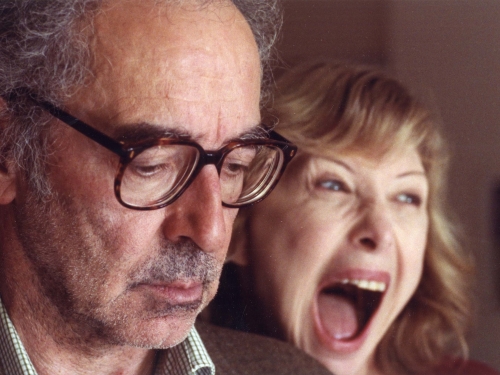
À la fin de Lou n’a pas dit non, Anne-Marie Miéville exprimait un vœu : « L’amour ne sera plus le commerce d’un homme et d’une femme, mais celui d’une humanité avec une autre. » Ce vœu, qu’elle rêve de voir s’accomplir dans notre monde qui, chaque jour, s’en éloigne plus sûrement, elle tente d’en comprendre le sens, la force prodigieuse et les effrayantes limites, dans Nous sommes tous encore ici, dont le titre, en lui-même, impose malgré tout une confiante conviction que précisent à la fois, d’éminents philosophes donnés comme experts chargés d’un débroussaillage de la question et la vie d’un couple chargé d’en opérer, jour après jour, la démonstration.